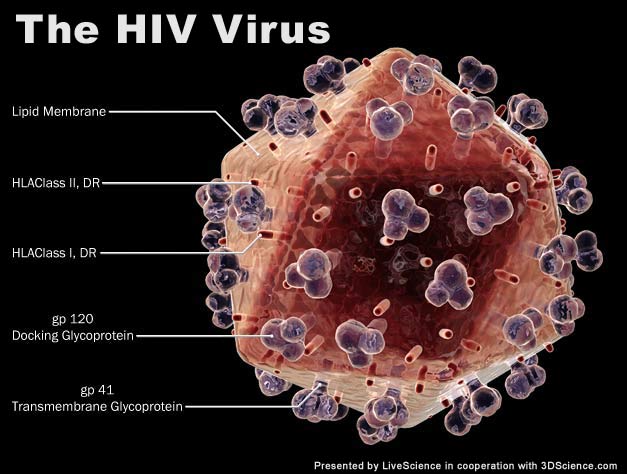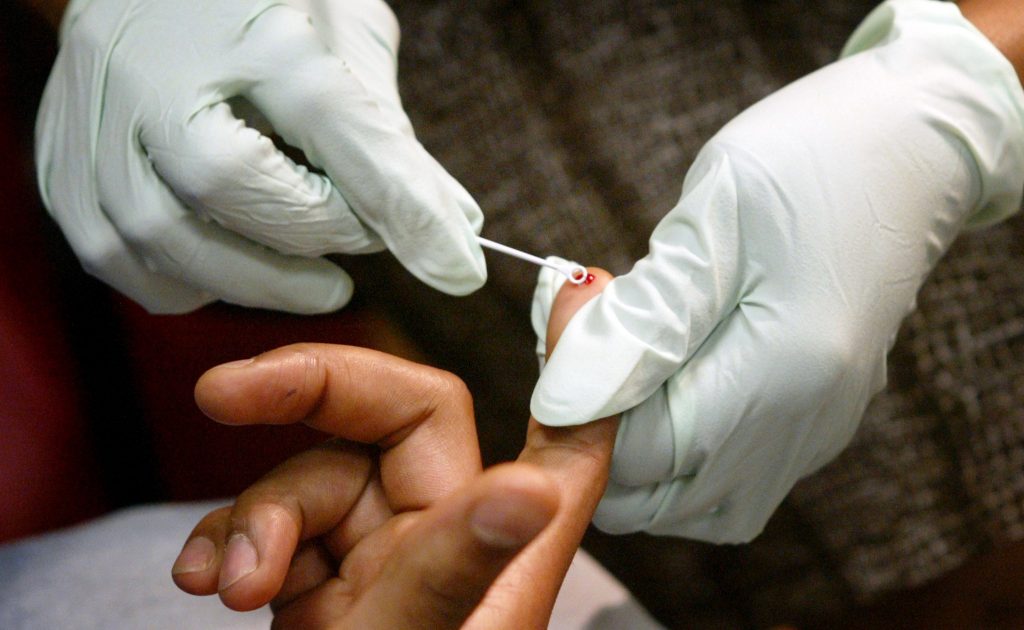John grew up in the province and didn’t know if he should come out in the open. Knowing that his parents are very conservative, he decided to keep his being a homosexual a secret. For how long, he would never know.
After graduating from high school, John told his parents he wanted to go to Davao City to pursue his dream of becoming an engineer. His parents didn’t object to his plan. In fact, they supported him.
He was already in his junior year in college when he met Mike, another closeted gay. They soon became lovers. He moved to Mike’s apartment to be with him. John did not learn, until later, that Mike already had several lovers prior to meeting him.
Months later, John observed that his lover was getting sickly – frequently having fever, weight loss and cough that would not go away. Mike dismissed his observation, saying he was only stressed out from work. But when Mike’s condition did not improve, John decided to bring him to the hospital.

At first, Mike protested. But John insisted and said he would go with him to the hospital.
Initially, the doctor could not find anything wrong with John’s lover. But when he learned that Mike had many sexual conquests before, the doctor tried to confirm from the laboratory what he had been suspecting.
Laboratory findings showed that Mike had human immunodeficiency virus (HIV), the virus that destroys the immune system and causes Acquired Immune Deficiency Syndrome or AIDS.
From one per day in 2008, the number of diagnosed HIV cases in the Philippines goes up to 38 per day in 2019, according to the Department of Health in its May report. In Davao, there are now 3 cases per day, the latest report showed.
“We cannot change nor deny the fact that HIV and AIDS cases continue to rise,” said Health Secretary Francisco T. Duque III.
A patient infected with HIV can have the virus for many years without having any physical symptoms. When the immune system is destroyed by the virus, a person is considered to have AIDS and the weak immune system places him or her at risk of various infections and even cancer. “Between HIV and AIDS, there is a window period of as much as five years,” Dr. Jordana P. Ramiterre, chief of the Reproductive Health and Wellness Center of the Davao City Health Office, was quoted as saying by Davao media.
“However, the speed HIV progresses will vary depending on age, health and background,” the website of Avert (www.avert.org) points out.
HIV is spread through the exchange of body fluids with high concentration of the virus (viral load) such as cerebral fluid, amniotic fluid, blood, semen, cervical and vaginal secretions, and breastmilk. It can be transmitted through sexual intercourse, blood and blood products, shared needles, and mother-to-child.
Being infected with HIV is no longer a death sentence these days. “HIV is not and should not be a death sentence anymore,” points out Dr. Louie Mar Gangcuangco, who has worked as a researcher at the Hawaii Center for AIDS. “If HIV is detected early and if the patient takes antiretrovirals early, the virus can be controlled.”
However, in order to be treated, you need to know if you have HIV. And you will only find out if you undergo HIV testing. “Testing for HIVand other sexually-transmitted infections is strongly advised for all people exposed to any of the risk factors,” the World Health Organization (WHO) said in its website. “This way people learn of their own infection status and access necessary prevention and treatment services without delay.”

However, all HIV testing services must follow the 5 principles recommended by WHO: consent (informed), confidentiality, counselling, correct test results, and connection (linkage to care, treatment and other services).
Recently, I went to a private hospital in Davao City to get tested. I was referred to go to where bloods are tested – for drug testing, blood samples for those who are sick or admitted to the hospital.
There were so many people inside the room. I took a number and waited for my number to be called. When my number came, I went to receptionist and told her my reason. When she heard about it, she wrote something and said I had to pay first to the cashier. She also gave a paper where I wrote my name and had it signed.
After paying to the cashier, I returned back to the receptionist, who called someone to accompany me. “Sir, you have to undergo counselling first before we will take your blood sample,” she said.
When I entered the room, I was greeted with a smile. Then, she explained to me the process. There are only two results, she said. “If the test says you are reactive, this means you may have HIV. If the test says you are non-reactive, this means you don’t have HIV.”
If the result is non-reactive, the person is immediately given the paper stating so. However, the HIV counselor emphasizes the importance of the ‘window period.’ This is the time when the test result reveals that you do not have HIV when in fact you are a carrier of the virus. If a person gets infected with HIV today, it takes about 2 week up to 6 months before the HIV screening can test positive, this is called the ‘window period.’ This is why persons who had recent exposure are encouraged to come back for a repeat HIV testing.
For those who are reactive, they have to wait about 2 to 4 weeks before they get the result. “Generally, if the blood has been found to be positive, it is sent to the San Lazaro Hospital in Manila for confirmation,” she said.
The counselor also inquired if a doctor referred me to the hospital. I replied that there was none and I was doing it on my own. This is a requirement of Philippine Law (Republic Act No. 8504). Under the law, the privacy rights of those seeking to get tested need to be respected.
After that, she went on asking some questions which are private matters like the first time to have sex, sexual preferences, acts done during sexual encounter, the last time I had sex, and anything pertaining to sexual life.
“Once I start questions people about these things,” the counselor said, “they are immediately turned off. But it’s part of the process. There are those who want to skip this question and answer portion and just proceed with blood testing.”
After that, I went back to where I started. I went to the receptionist and told me to wait. When my number was called again, I went to a cubicle where a blood sample was taken. After that, I was asked to return that same day to get the result.
When the time came, I returned to the counselor to get the result. She asked my name again and when she found it in her computer, she printed a copy. She placed it in a white envelope and handed it to me.
I was adamant to open it. But after a few moments, I finally opened it. It reads: “Non-Reactive.” I told the counselor, who said: “Congratulations!” She gave me some words of advice. I thanked her profusely and left.
In Davao City, there are three facilities where people can go to be tested for HIV: Southern Philippine Medical Center in Bajada, Davao Doctors Hospital in Quirino Street, and Davao Reproductive Health and Wellness Center in Emilio Jacinto Street.
In Tagum City, they can go to Davao Regional Medical Center in Apokon. There’s also one in General Santos City – at General Santos City Social Hygiene Clinic of the City Health Office in Lagao.
“Knowing your HIV status is not just a right but also a responsibility. People with HIV can live normal and productive lives as long as they take their medications and follow-up regularly with your doctor. Getting tested is not only for yourself, but also for your loved ones,” says Dr. Gangcuangco, an international HIV researcher and a Balik-Scientist of the Department of Science and Technology. (To be concluded)
(Photos taken from the net)










